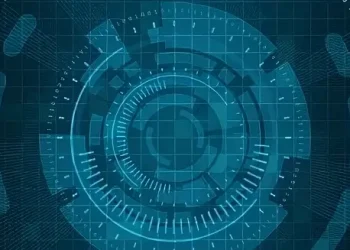As space becomes increasingly critical to national security and economic stability, the National Space Operations Centre (NSpOC) continues to safeguard UK interests.
In July 2024, the NSpOC’s vigilance ensured the safety of our assets in space and on Earth, responding effectively to re-entry alerts, collision risks, and space weather events.
July 2024: A Month of Vigilance and Protection
In July the National Space Operations Centre (NSpOC) played a pivotal role in maintaining the safety and security of UK interests in space. From monitoring uncontrolled re-entries to issuing collision avoidance warnings, NSpOC’s actions were crucial in managing space-related threats.
- Monitoring Uncontrolled Re-Entries: Throughout July, NSpOC tracked 44 uncontrolled re-entries into Earth’s atmosphere. Although this figure marked an 8% decrease from June, it still represented a 50% increase above the year’s average, primarily due to the decommissioning of small communication satellites. This continued vigilance highlights the ongoing challenges posed by the increasing number of objects in orbit.
In-Space Collision Avoidance
Collision risks in space remain a significant concern for satellite operators. In July, NSpOC alerted UK-licensed operators to 1,795 potential collision risks—a 5% decrease from the previous month.
These warnings were crucial, allowing operators to take necessary precautions and avoid potentially catastrophic collisions that could have severe implications for both commercial and national security satellites.
- Space Weather Alerts: The Met Office issued 27 critical space weather alerts in July, a 58% decrease from June. These alerts were vital in preparing satellite operators and other stakeholders for potential disruptions caused by solar flares and geomagnetic storms. While July saw fewer space weather incidents than June, the potential for significant disruptions remained a key focus for NSpOC.
Fragmentation Incidents and Space Object Tracking
On 19 July, a U.S. satellite, DMSP 5D-2 F8, fragmented, generating five pieces of catalogued debris. Despite the fragmentation, the main body of the satellite appeared to remain largely intact, reducing the risk of further debris creation.
Additionally, July saw 13 launches and a total increase of 143 registered space objects, further highlighting the growing complexity of space operations. This increase included 22 Starlink satellites deployed by SpaceX, contributing to the expanding satellite constellation.
Activity |
July 2024 |
June 2024 |
% Change |
|---|---|---|---|
| Uncontrolled Re-Entries | 44 | 48 | -8% |
| Collision Risks | 1,795 | 1,881 | -5% |
| Space Weather Alerts | 27 | 64 | -58% |
This table provides a summary of the space-related activities monitored by NSpOC in July 2024, offering a clear comparison with the previous month.

Ensuring a Safe Space Environment
The work of NSpOC in July 2024 underscores the critical role of space domain awareness in protecting UK assets. As the number of objects in space continues to grow, so does the complexity of monitoring and managing the risks associated with them.
NSpOC’s proactive approach ensures that space remains a safe and secure environment for the UK and its international partners.
As space activities increase globally, the need for continued vigilance and robust monitoring systems becomes ever more apparent. NSpOC’s efforts in July demonstrate the importance of such measures in maintaining the UK’s position as a leader in space safety and security.
Sources: THX News, National Space Operations Centre & UK Space Agency.








